Recording of the live sessions held during the First year of BISMiS Live are given below along with the speaker's biography.
Subscribe to our YouTube Channel for the Live Stream and concluded sessions.
Inaugural Session- March 20, 2021
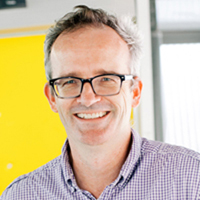 Speaker: Prof. Phil Hugenholtz, Australian Centre for Ecogenomics, University of Queensland
Title of the Talk: The Genome Taxonomy Database (GTDB) – Lessons Learned
Biosketch: From a PhD in 1994 at the University of Queensland, Phil Hugenholtz developed a career in microbiology and genomics in the USA and in Australia. His last position in the USA was as Staff Scientist (2004-2010) at the DOE Joint Genome Institute. In late 2010 he returned home to establish the Australian Centre for Ecogenomics (ACE) at the University of Queensland, now comprising over 50 research and support staff. The Centre conducts culture-independent sequence-based research across a wide range of environmental, engineered and clinical ecosystems underpinned by a genome-based evolutionary framework.
Recorded Session: Watch Here
Speaker: Prof. Phil Hugenholtz, Australian Centre for Ecogenomics, University of Queensland
Title of the Talk: The Genome Taxonomy Database (GTDB) – Lessons Learned
Biosketch: From a PhD in 1994 at the University of Queensland, Phil Hugenholtz developed a career in microbiology and genomics in the USA and in Australia. His last position in the USA was as Staff Scientist (2004-2010) at the DOE Joint Genome Institute. In late 2010 he returned home to establish the Australian Centre for Ecogenomics (ACE) at the University of Queensland, now comprising over 50 research and support staff. The Centre conducts culture-independent sequence-based research across a wide range of environmental, engineered and clinical ecosystems underpinned by a genome-based evolutionary framework.
Recorded Session: Watch Here
Second Session- April 17, 2021
 Speaker: Prof. Iain Sutcliffe, Department of Microbiology, Northumbria University
Title of the Talk: Microbial taxonomy: where are we now and where are we going?
Biosketch: Iain took his degree and PhD at the University of Newcastle upon Tyne, UK, the latter supervised by Norman Shaw, a pioneer in using bacterial lipids for chemotaxonomy. Subsequent post-doctoral research in Newcastle included a Wellcome Trust Fellowship in Taxonomy, studying actinomycete lipoglycans as chemotaxonomic markers. Since 2003 he has been based Northumbria University, UK, where his research investigates the biology of membrane-anchored macromolecules within the cell envelopes of bacteria. From 2009-2019 he was Editor-in-Chief of Antonie van Leeuwenhoek, during which time the journal developed as a major forum for papers in microbial systematics, including significant numbers of prokaryotic species descriptions and special issues drawn from the 1st and 3rd meetings of BISMiS (Beijing and Pune). Since 2017 he has been Chair of the International Committee on Systematics of Prokaryotes (ICSP).
Recorded Session: Watch Here
Speaker: Prof. Iain Sutcliffe, Department of Microbiology, Northumbria University
Title of the Talk: Microbial taxonomy: where are we now and where are we going?
Biosketch: Iain took his degree and PhD at the University of Newcastle upon Tyne, UK, the latter supervised by Norman Shaw, a pioneer in using bacterial lipids for chemotaxonomy. Subsequent post-doctoral research in Newcastle included a Wellcome Trust Fellowship in Taxonomy, studying actinomycete lipoglycans as chemotaxonomic markers. Since 2003 he has been based Northumbria University, UK, where his research investigates the biology of membrane-anchored macromolecules within the cell envelopes of bacteria. From 2009-2019 he was Editor-in-Chief of Antonie van Leeuwenhoek, during which time the journal developed as a major forum for papers in microbial systematics, including significant numbers of prokaryotic species descriptions and special issues drawn from the 1st and 3rd meetings of BISMiS (Beijing and Pune). Since 2017 he has been Chair of the International Committee on Systematics of Prokaryotes (ICSP).
Recorded Session: Watch Here
Third Session- May 15, 2021
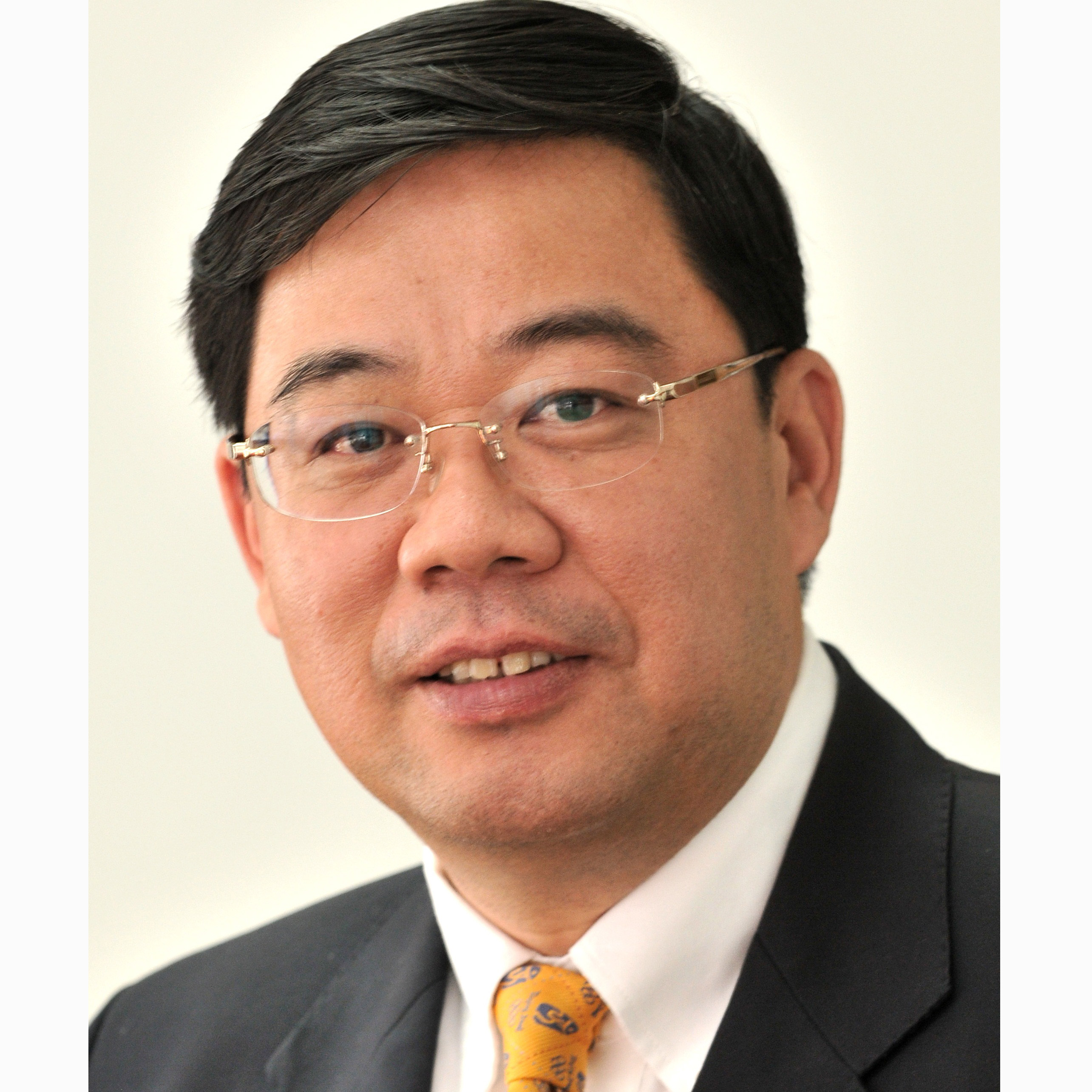 Speaker: Prof. Juncai Ma, Institute of Microbiology, Chinese Academy of Sciences
Title of the Talk: GCM 2.0: WDCM 10K Sequencing Project for Type Strains
Biosketch: Dr. Juncai MA received Ph D degree from Department of Bio-resources of Mie University in Japan, now he is the director of The Microbial Resource and Big Data Center in Institute of Microorganisms, Chinese Academy of Science. He is also the director of China National Microbiology Data Center and WFCC-MIRCEN World Data Center of Microorganisms (WDCM), and Board Member of World Federation of Culture Collections (WFCC).
Recorded Session: Watch Here
Speaker: Prof. Juncai Ma, Institute of Microbiology, Chinese Academy of Sciences
Title of the Talk: GCM 2.0: WDCM 10K Sequencing Project for Type Strains
Biosketch: Dr. Juncai MA received Ph D degree from Department of Bio-resources of Mie University in Japan, now he is the director of The Microbial Resource and Big Data Center in Institute of Microorganisms, Chinese Academy of Science. He is also the director of China National Microbiology Data Center and WFCC-MIRCEN World Data Center of Microorganisms (WDCM), and Board Member of World Federation of Culture Collections (WFCC).
Recorded Session: Watch Here
Fourth Session- June 19, 2021
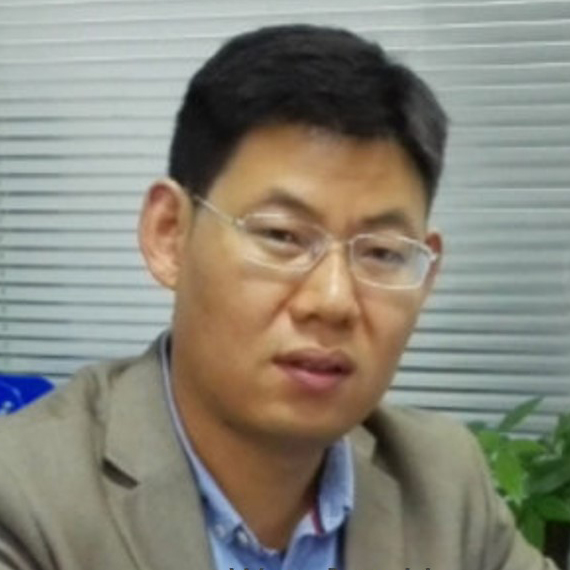 Speaker: Prof. Wen-Jun Li, School of Life Sciences, Sun Yat Sen University
Title of the Talk: Mining the Microbial Dark Matter: Challenges and Opportunities
Biosketch: Wen-Jun Li obtained his PhD degree from Institute of Applied Ecology, Chinese Academy of Sciences in 2002. He started in 1996 at Yunnan University at Kunming and later-on moved to the School of Life Sciences, Sun Yat-Sen University at Guangzhou in 2014, where he is currently working as Distinguished Professor. He has published six monographs, 30 patents and over 840 peer reviewed papers. He is the Associate Editor for IJSEM, ANTO, Frontiers in Microbiology & BioMed Research International, and serves on the Editorial Board of mLife, Journal of Arid Land, Acta Microbiologica Sinica and Chinese Journal of Microbiology. He was awarded the WFCC Skerman Award for Microbial Taxonomy in 2007 and has received Provincial Level Awards six times since 2005 for his outstanding research contributions in the field of Microbial Systematics. He is a 'Committee Member' of the ICSP on the suborder Micrococcales since 2008 and a ‘Charter Member’ of BISMiS since 2011. He was also appointed as a member of the Executive Board (EB, 2017-2020) of ICSP during its meeting at Valencia, Spain, and also serving Secretary of BISMiS since April 2018.
Recorded Session: Watch Here
Speaker: Prof. Wen-Jun Li, School of Life Sciences, Sun Yat Sen University
Title of the Talk: Mining the Microbial Dark Matter: Challenges and Opportunities
Biosketch: Wen-Jun Li obtained his PhD degree from Institute of Applied Ecology, Chinese Academy of Sciences in 2002. He started in 1996 at Yunnan University at Kunming and later-on moved to the School of Life Sciences, Sun Yat-Sen University at Guangzhou in 2014, where he is currently working as Distinguished Professor. He has published six monographs, 30 patents and over 840 peer reviewed papers. He is the Associate Editor for IJSEM, ANTO, Frontiers in Microbiology & BioMed Research International, and serves on the Editorial Board of mLife, Journal of Arid Land, Acta Microbiologica Sinica and Chinese Journal of Microbiology. He was awarded the WFCC Skerman Award for Microbial Taxonomy in 2007 and has received Provincial Level Awards six times since 2005 for his outstanding research contributions in the field of Microbial Systematics. He is a 'Committee Member' of the ICSP on the suborder Micrococcales since 2008 and a ‘Charter Member’ of BISMiS since 2011. He was also appointed as a member of the Executive Board (EB, 2017-2020) of ICSP during its meeting at Valencia, Spain, and also serving Secretary of BISMiS since April 2018.
Recorded Session: Watch Here
Fifth Session- July 17, 2021
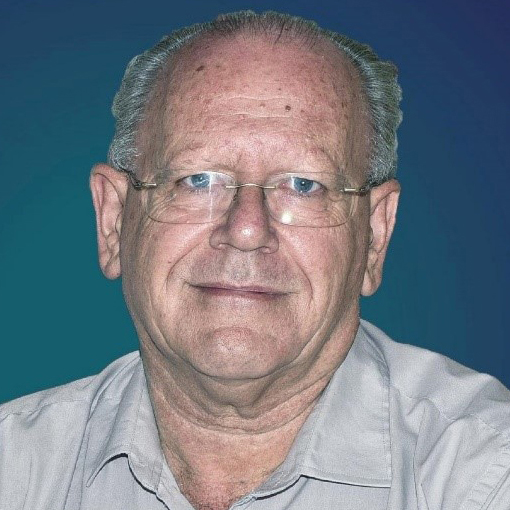 Speaker: Prof. Aharon Oren, The Alexander Silberman Institute of Life Sciences, The Hebrew University of Jerusalem
Title of the Talk: Naming New Taxa of Prokaryotes in the 21st Century
Biosketch: Aharon did his Masters in Biochemsitry and Microbiology from the University of Groningen at The Netherlands, then moved to Israel for PhD (1979) from the Hebrew University of Jerusalem. From 1982 to 84, he completed postdoctoral studies at the University of Illinois at Urbana-Champaign, after which he joined as a faculty member at the Hebrew University of Jerusalem. He is the Executive Secretary and past Chair of the International Committee on Systematics of Prokaryotes (ICSP); Editor-in-Chief for the International Code of Nomenclature of Prokaryotes; and Editor for International Journal of Systematic and Evolutionary Microbiology, Bergey’s Manual of Systematics of Archaea and Bacteria, FEMS Microbiology Letters, Systematic and Applied Microbiology, Extremophiles, and more. Read more...
Recorded Session: Watch Here
Speaker: Prof. Aharon Oren, The Alexander Silberman Institute of Life Sciences, The Hebrew University of Jerusalem
Title of the Talk: Naming New Taxa of Prokaryotes in the 21st Century
Biosketch: Aharon did his Masters in Biochemsitry and Microbiology from the University of Groningen at The Netherlands, then moved to Israel for PhD (1979) from the Hebrew University of Jerusalem. From 1982 to 84, he completed postdoctoral studies at the University of Illinois at Urbana-Champaign, after which he joined as a faculty member at the Hebrew University of Jerusalem. He is the Executive Secretary and past Chair of the International Committee on Systematics of Prokaryotes (ICSP); Editor-in-Chief for the International Code of Nomenclature of Prokaryotes; and Editor for International Journal of Systematic and Evolutionary Microbiology, Bergey’s Manual of Systematics of Archaea and Bacteria, FEMS Microbiology Letters, Systematic and Applied Microbiology, Extremophiles, and more. Read more...
Recorded Session: Watch Here
Sixth Session- August 21, 2021
 Speaker: Prof. Brian Hedlund, School of Life Sciences, University of Nevada- Las Vegas
Title of the Talk: Taxonomy of uncultivated microorganisms: The good, the bad, and the ugly
Biosketch: Brian Hedlund is fascinated by the microbial dark matter and its ecological relevance. From his PhD work on Verrucomicrobia at the University of Washington in 2000 to his postdcotoral work on the cultivation of novel thermophiles from the Yellowstone National Park at Universität Regensburg Lehrstuhl für Mikrobiologie, Germany, Brian established an expertise in the microbial ecology, genomics, biogeochemical cycling, physiology & taxonomy of this vast diversity, especially thermophiles. His group at the University of Nevada- Las Vegas is leading the efforts on microbial taxonomy for the next decade using an inclusive approach to cover the uncultivated microorganisms. He has recevied several awards throughout his research career, most recent being the Nevada Regent's Mid-Career Researcher Award in 2019. He has successful grants from NASA, NSF, NIH, DOE-JGI, Amazon and several other agencies. He has published 96 high-impact research articles including many in Science and Nature, and 28 book chapters. Brian was an editor of the Bergey's Manual and Antonie van Leeuwenhoek. He is currently serving on the editorial board of Applied and Enrionmental Microbiology, Geobiology, Frontiers in Microbiology and Extremophiles. He leads an excellent outreach program to involve early-career and diverse scientists in microbial ecology research.
Recorded Session: Watch Here
Speaker: Prof. Brian Hedlund, School of Life Sciences, University of Nevada- Las Vegas
Title of the Talk: Taxonomy of uncultivated microorganisms: The good, the bad, and the ugly
Biosketch: Brian Hedlund is fascinated by the microbial dark matter and its ecological relevance. From his PhD work on Verrucomicrobia at the University of Washington in 2000 to his postdcotoral work on the cultivation of novel thermophiles from the Yellowstone National Park at Universität Regensburg Lehrstuhl für Mikrobiologie, Germany, Brian established an expertise in the microbial ecology, genomics, biogeochemical cycling, physiology & taxonomy of this vast diversity, especially thermophiles. His group at the University of Nevada- Las Vegas is leading the efforts on microbial taxonomy for the next decade using an inclusive approach to cover the uncultivated microorganisms. He has recevied several awards throughout his research career, most recent being the Nevada Regent's Mid-Career Researcher Award in 2019. He has successful grants from NASA, NSF, NIH, DOE-JGI, Amazon and several other agencies. He has published 96 high-impact research articles including many in Science and Nature, and 28 book chapters. Brian was an editor of the Bergey's Manual and Antonie van Leeuwenhoek. He is currently serving on the editorial board of Applied and Enrionmental Microbiology, Geobiology, Frontiers in Microbiology and Extremophiles. He leads an excellent outreach program to involve early-career and diverse scientists in microbial ecology research.
Recorded Session: Watch Here
Seventh Session- September 18, 2021
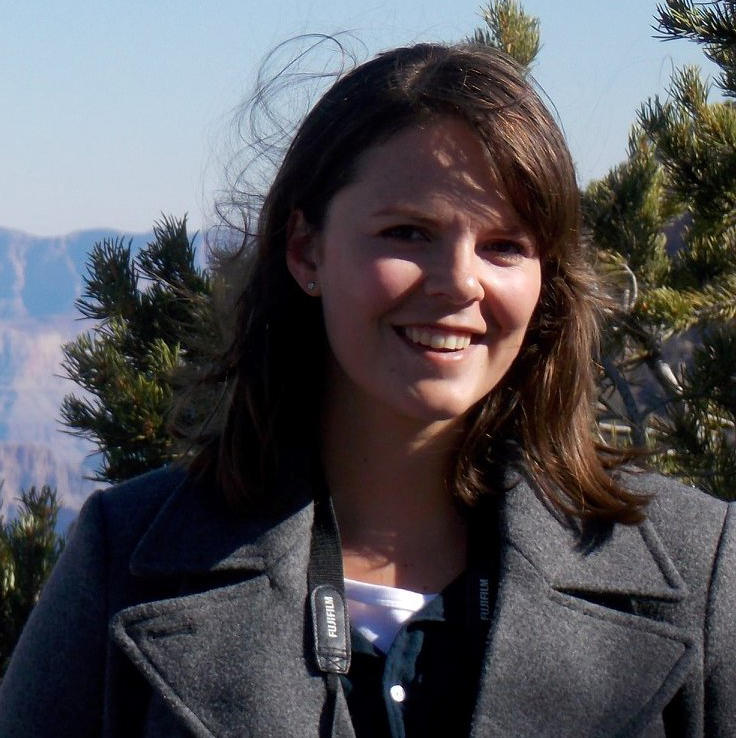 Speaker: Dr. Marike Palmer, School of Life Sciences, University of Nevada- Las Vegas
Title of the Talk: Microbial species concepts - the status quo in the -omics era
Biosketch: Marike completed an MSc (2014) and a PhD (2018) in microbial systematics at the University of Pretoria, South Africa, under the guidance of Fanus Venter and Emma Steenkamp. Subsequent research experience included a postdoctoral position at the University of Pretoria, until early 2019, after which she joined the research group of Brian Hedlund at the University of Nevada, Las Vegas, USA, where she is currently based. Marike’s scientific interests and skillset places her research at the transect between systematics and ecology. During her PhD and postdoctoral research, Marike has been part of large collaborative projects, where her expertise in genomics, phylogenomics and -genetics, along with microbial taxonomy and evolution have contributed to our better understanding of several taxa. More recently, Marike’s research includes biodiversity exploration of the uncultivated majority of prokaryotes, along with environmental viromics. During her research career, Marike has received several scholarships and bursaries from the NRF (South Africa) and is currently involved in NIH- and NSF-funded research. She frequently reviews manuscripts for the International Journal of Systematic and Evolutionary Microbiology, Frontiers in Microbiology, among others, and have presented talks and posters on her research at several national and international conferences.
Recorded Session: Watch Here
Speaker: Dr. Marike Palmer, School of Life Sciences, University of Nevada- Las Vegas
Title of the Talk: Microbial species concepts - the status quo in the -omics era
Biosketch: Marike completed an MSc (2014) and a PhD (2018) in microbial systematics at the University of Pretoria, South Africa, under the guidance of Fanus Venter and Emma Steenkamp. Subsequent research experience included a postdoctoral position at the University of Pretoria, until early 2019, after which she joined the research group of Brian Hedlund at the University of Nevada, Las Vegas, USA, where she is currently based. Marike’s scientific interests and skillset places her research at the transect between systematics and ecology. During her PhD and postdoctoral research, Marike has been part of large collaborative projects, where her expertise in genomics, phylogenomics and -genetics, along with microbial taxonomy and evolution have contributed to our better understanding of several taxa. More recently, Marike’s research includes biodiversity exploration of the uncultivated majority of prokaryotes, along with environmental viromics. During her research career, Marike has received several scholarships and bursaries from the NRF (South Africa) and is currently involved in NIH- and NSF-funded research. She frequently reviews manuscripts for the International Journal of Systematic and Evolutionary Microbiology, Frontiers in Microbiology, among others, and have presented talks and posters on her research at several national and international conferences.
Recorded Session: Watch Here
Eighth Session- October 16, 2021
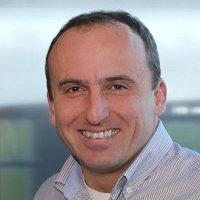 Speaker: Prof. Kostas Konstantinidis, School of Civil & Environmental Engineering, Georgia Institute of Technology
Title of the Talk: Classifying prokaryotic genomes using the 95% ANI threshold and the Microbial Genomes Atlas (MiGA) webserver
Biosketch: Dr. Kostas Konstantinidis is the Richard C. Tucker Professor in the School of Civil and Environmental Engineering and the School of Biological Sciences (adjunct) at Georgia Tech and Program Faculty for the Coulter Department of Biomedical Engineering at Georgia Tech and Emory University. He earned his BS (1999) in Agricultural Sciences from the Aristotle University of Thessaloniki, Greece and his PhD (2004) from the Center for Microbial Ecology at Michigan State University, under the supervision of James Tiedje. Prior to joining the faculty at Georgia Tech, he was a Postdoctoral Fellow in the Department of Civil and Environmental Engineering at MIT under the supervision of Ed DeLong. The overarching goal of his research is to advance understanding of how microorganisms adapt to human-induced environmental perturbations and to cause disease. He is also interested in the biotechnological applications of microbial diversity in the bioremediation of environmental pollutants and the assessment of water quality. The great majority of microorganisms resists cultivation in the laboratory and thus, cannot be studied efficiently. Therefore, another major objective of his research program is to develop novel culture-independent (e.g., metagenomics and metatranscriptomics) approaches and associated bioinformatics tools to study microbial communities in-situ, in both natural (e.g., terrestrial or marine) as well as human-associated systems. He has published 150 papers in these areas, 12 in PNAS alone, and received several international distinctions and awards for his work, including the 2010 International Skerman Award from the World Federation for Culture Collections, and a 2014 Kavli Frontier Fellowship. He is an elected member of the American Academy of Microbiology and in the top 1% of world's Highly Cited scientists and engineers by Clarivate/Web of Science. His bioinformatics approaches are available for online analysis of microbial genome and metagenome data through the lab webserver, which receives >3,000 visitors each month.
Lab website: http://enve-omics.gatech.edu
Recorded Session: Watch Here
Speaker: Prof. Kostas Konstantinidis, School of Civil & Environmental Engineering, Georgia Institute of Technology
Title of the Talk: Classifying prokaryotic genomes using the 95% ANI threshold and the Microbial Genomes Atlas (MiGA) webserver
Biosketch: Dr. Kostas Konstantinidis is the Richard C. Tucker Professor in the School of Civil and Environmental Engineering and the School of Biological Sciences (adjunct) at Georgia Tech and Program Faculty for the Coulter Department of Biomedical Engineering at Georgia Tech and Emory University. He earned his BS (1999) in Agricultural Sciences from the Aristotle University of Thessaloniki, Greece and his PhD (2004) from the Center for Microbial Ecology at Michigan State University, under the supervision of James Tiedje. Prior to joining the faculty at Georgia Tech, he was a Postdoctoral Fellow in the Department of Civil and Environmental Engineering at MIT under the supervision of Ed DeLong. The overarching goal of his research is to advance understanding of how microorganisms adapt to human-induced environmental perturbations and to cause disease. He is also interested in the biotechnological applications of microbial diversity in the bioremediation of environmental pollutants and the assessment of water quality. The great majority of microorganisms resists cultivation in the laboratory and thus, cannot be studied efficiently. Therefore, another major objective of his research program is to develop novel culture-independent (e.g., metagenomics and metatranscriptomics) approaches and associated bioinformatics tools to study microbial communities in-situ, in both natural (e.g., terrestrial or marine) as well as human-associated systems. He has published 150 papers in these areas, 12 in PNAS alone, and received several international distinctions and awards for his work, including the 2010 International Skerman Award from the World Federation for Culture Collections, and a 2014 Kavli Frontier Fellowship. He is an elected member of the American Academy of Microbiology and in the top 1% of world's Highly Cited scientists and engineers by Clarivate/Web of Science. His bioinformatics approaches are available for online analysis of microbial genome and metagenome data through the lab webserver, which receives >3,000 visitors each month.
Lab website: http://enve-omics.gatech.edu
Recorded Session: Watch Here
Ninth Session- December 18, 2021
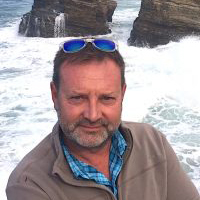 Speaker: Prof. Ramon Rossello-Mora, Institut Mditerrani d’Estudis Avançats (CSIC-UIB), Universitat de les Illes Balears
Title of the Talk: Lessons learned from the LTP that reinforces the robustness of the 16S as phylogenetic marker for biodiversity studies
Biosketch: RRM is currently senior researcher at the Spanish Council (CSIC), and working in the joint research institute IMEDEA (CSIC-UIB) leading the Marine Microbial Group. He did his PhD at the University of the Balearic Islands and postdocs at the Technical University of Berlin, Technical University of Munich and the Max-Planck Institute for Marine Microbiology in Bremen. Specialized in molecular microbial ecology of marine sediments and hypersaline environments, as well as in theoretical and practical aspects of microbial taxonomy. As taxonomist he has been granted with the 2017 Bergey Award, and is Vice-Chair of the Judicial Commission of the International Committee for Systematics of Prokaryotes, and executive editor of Systematic and Applied Microbiology. Member of the European Academy of Microbiology since 2016. His expertise is on microbial systematics, taxonomy, phylogeny and molecular ecology of (especially) marine and hyperhalophilic prokaryotes. He has been working on genomics and metagenomics of prokaryotes, as well as different aspects of molecular microbial ecology.
Recorded Session: Watch Here
Speaker: Prof. Ramon Rossello-Mora, Institut Mditerrani d’Estudis Avançats (CSIC-UIB), Universitat de les Illes Balears
Title of the Talk: Lessons learned from the LTP that reinforces the robustness of the 16S as phylogenetic marker for biodiversity studies
Biosketch: RRM is currently senior researcher at the Spanish Council (CSIC), and working in the joint research institute IMEDEA (CSIC-UIB) leading the Marine Microbial Group. He did his PhD at the University of the Balearic Islands and postdocs at the Technical University of Berlin, Technical University of Munich and the Max-Planck Institute for Marine Microbiology in Bremen. Specialized in molecular microbial ecology of marine sediments and hypersaline environments, as well as in theoretical and practical aspects of microbial taxonomy. As taxonomist he has been granted with the 2017 Bergey Award, and is Vice-Chair of the Judicial Commission of the International Committee for Systematics of Prokaryotes, and executive editor of Systematic and Applied Microbiology. Member of the European Academy of Microbiology since 2016. His expertise is on microbial systematics, taxonomy, phylogeny and molecular ecology of (especially) marine and hyperhalophilic prokaryotes. He has been working on genomics and metagenomics of prokaryotes, as well as different aspects of molecular microbial ecology.
Recorded Session: Watch Here
Tenth Session- January 15, 2022
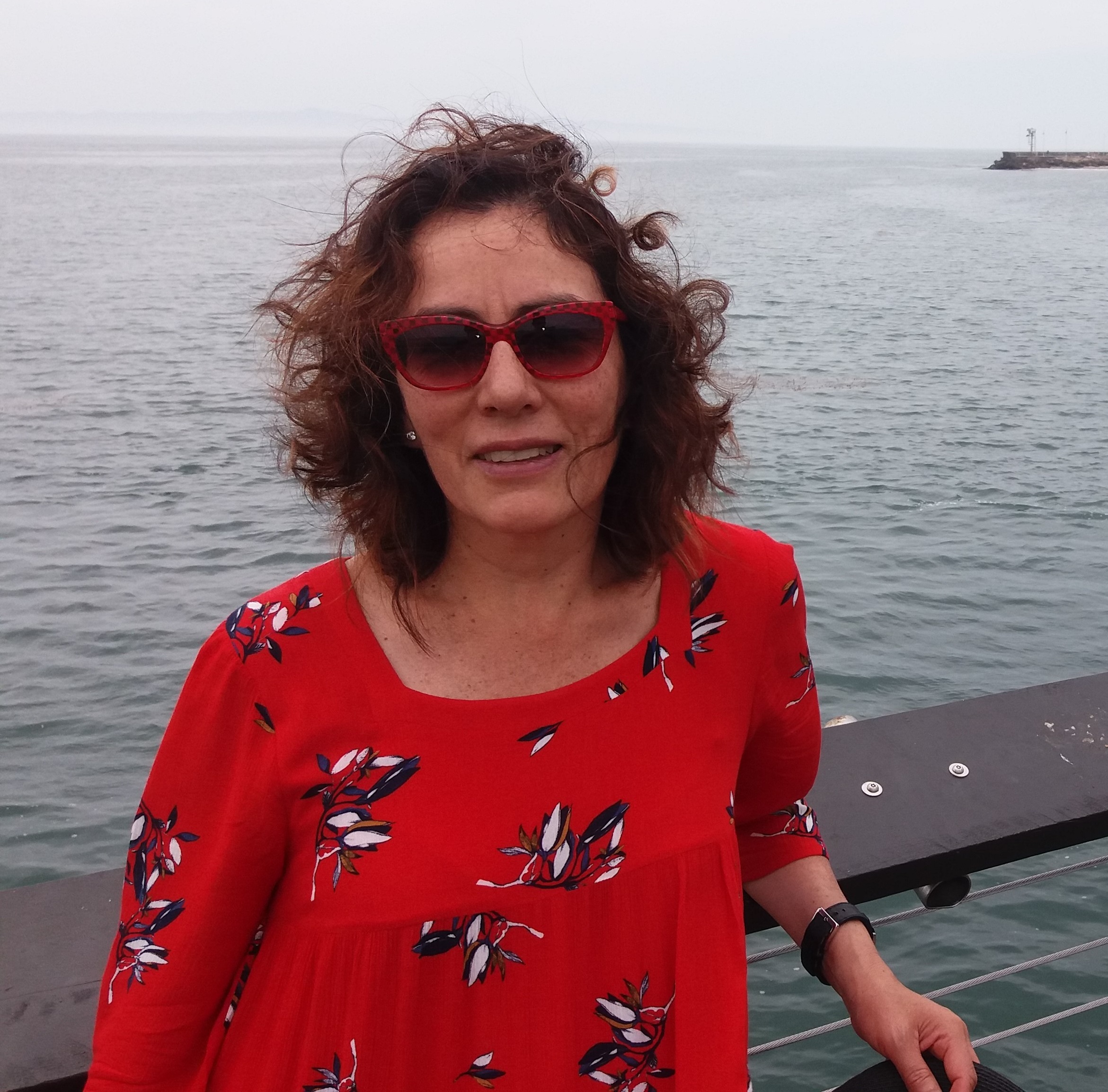 Speaker: Prof. Martha Trujillo, Department of Microbiology and Genetics, Universidad de Salamanca
Title of the Talk: Taxonomic descriptions and reviews: in need of a new working frame
Biosketch: Full Professor of Microbiology in the Faculty of Agriculture and Environmental Sciences, at the University of Salamanca, Spain. She obtained her PhD in Microbial Systematics at the University of Newcastle upon Tyne (UK). Following this time, she held a postdoctoral research post at Novartis, A.G. in the Microbiology Department in Basel, Switzerland. Professor Trujillo is leader of the research Group Microbial Ecology and Biotechnology with main research areas in actinobacterial systematics and ecology of plant-bacteria interactions. In addition, current research is focused on plant microbiomes and their modulation to improve agricultural practices under the impact of climate change. Since 2017, she is Editor in Chief of the International Journal of Systematic and Evolutionary Microbiology. In 2020, she was the recipient of the The Bergey Medal.
Recorded Session: Watch Here
Speaker: Prof. Martha Trujillo, Department of Microbiology and Genetics, Universidad de Salamanca
Title of the Talk: Taxonomic descriptions and reviews: in need of a new working frame
Biosketch: Full Professor of Microbiology in the Faculty of Agriculture and Environmental Sciences, at the University of Salamanca, Spain. She obtained her PhD in Microbial Systematics at the University of Newcastle upon Tyne (UK). Following this time, she held a postdoctoral research post at Novartis, A.G. in the Microbiology Department in Basel, Switzerland. Professor Trujillo is leader of the research Group Microbial Ecology and Biotechnology with main research areas in actinobacterial systematics and ecology of plant-bacteria interactions. In addition, current research is focused on plant microbiomes and their modulation to improve agricultural practices under the impact of climate change. Since 2017, she is Editor in Chief of the International Journal of Systematic and Evolutionary Microbiology. In 2020, she was the recipient of the The Bergey Medal.
Recorded Session: Watch Here




















